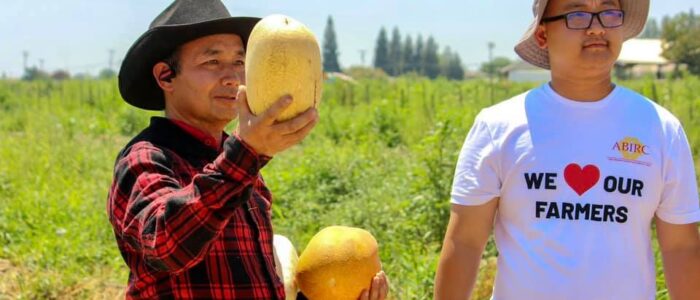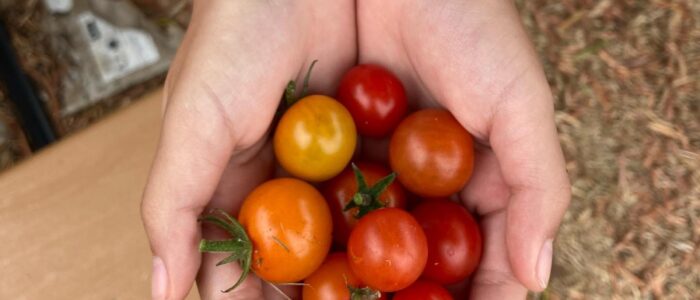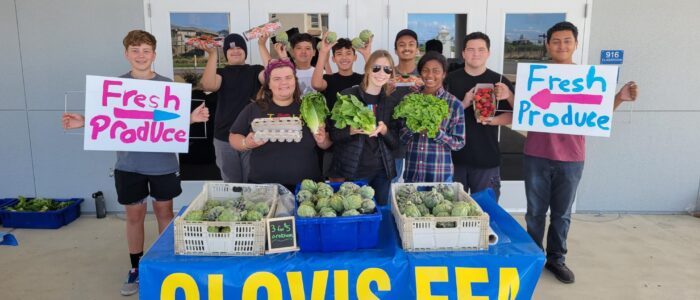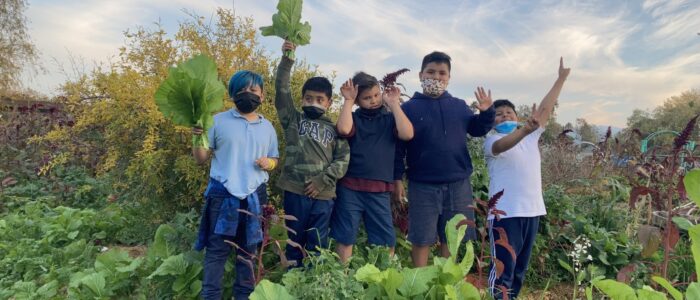California Farm to School Incubator Grant Program Evaluation
©2021 Photos supplied to the CDFA by CA Farm to School Incubator Grantees.
Background
As of 2022-23, California has made the largest investment of any state in the country in farm to school programs, allocating approximately $100 million over three years. A large portion of these funds support the California Farm to School Incubator Grant Program which has seen funding grow since its inaugural year in 2020 from $10 million to $60 million for 2022-23. The California Department of Agriculture (CDFA) is awarding competitive grants to farm to school projects that aim to cultivate equity, nurture students, build climate resilience, and create scalable and sustainable change. Funded projects will facilitate the expansion of farm to school initiatives across California as envisioned in Planting the Seed: Farm to School Roadmap for Success (Roadmap) released by California First Partner Jennifer Siebel Newsom and CDFA Secretary Karen Ross in February 2022.
“Our goal is to track metrics in California and set a national standard for farm-to-school throughout the country.”
First Partner Jennifer Siebel Newsom. From Getting healthy, nutritious foods to California students isn’t easy. First Partner Jennifer Siebel Newsom is making it her priority issue.
Evaluation by Experts
The grant program is being evaluated by an independent team of researchers with expertise in food systems, policy analysis, sociology, spatial data collection and analysis, environmental science, and agricultural economics. The research team will provide a comprehensive analysis of the economic, environmental, and social impacts of this important investment in our children, schools, farms, and communities.
The team is tasked with evaluating the second and third cohorts of grantees, with cohort two projects beginning in early 2023. Exploratory data from the first cohort of grantees, whose projects began in July 2021, will also be gathered. An Advisory Committee has been established to support the research team, providing input and expertise as needed. The team will regularly update CDFA, the Office of the First Partner, agencies with overlapping priorities, such as the Department of Education, Natural Resources and Strategic Growth Council, legislators, and community stakeholders via research and policy briefs, a publicly available website, and story maps.
Evaluation Goals
- Measure the returns on investment of the grant program across economies, the environment, education, and equity.
- Map the farm to school grantees and their suppliers, key influencers, and levers for change.
- Develop modeling to help the state and the public assess how and where to invest resources to achieve – and sustain – the Roadmap’s vision.
- Identify:
- enabling conditions for successful farm to school programs;
- motivations for decision making by key stakeholders related to school food procurement; and
- structural barriers to implementation for districts, producers, and aggregators/distributors.
Evaluation Scope
The scope of the evaluation is illustrated in this diagram. Data gathered from the four interconnected entities – farms and other producers; aggregators and distributors; community groups, NGOs and other partners; and K12 schools and early childhood education programs (ECEs) – will illuminate the underlying enabling conditions and barriers leading to measurable impacts across the four ‘E’s – economic, environmental, educational, and equity. Recommendations will inform the local community as well as state and federal governments.
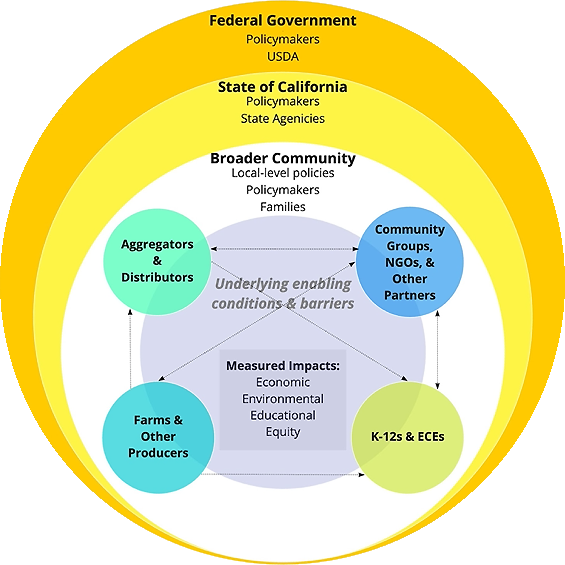
Informing Policy
A successful evaluation of the grant program will inform the public, program administrators, elected officials, and local, state, and federal agencies about the program’s progress towards the goals and priorities outlined in the Roadmap, overall impact, and potential for continued improvements. Based on findings related to barriers, enabling conditions, and success stories, the team will make recommendations addressing key intersecting agricultural, economic, climate, and equity focused policies.
“The evaluation will seek to measure return on investment from the state’s budget allocation for farm to school programming, ensuring resources are allocated as intended to achieve stated goals and objectives, and to identify barriers to implementation, best practices, and effective strategies for farm to school success.”
Planting the Seed: Farm to School Roadmap for Success
Links to Resources
California’s Farm to School Incubator Grant Program
California Department of Food and Agriculture Office of Farm to Fork
Planting the Seed: Farm to School Roadmap for Success
National Farm to Institution Metrics Collaborative
Read this information on our two-page Farm to School Incubator Grant Program Overview.
